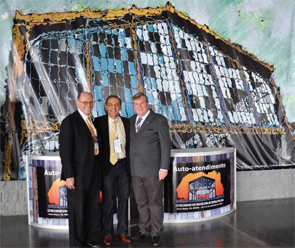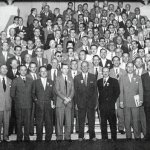

The world is getting smaller, and to advance rheumatology, collaboration from rheumatology health professionals and organizations worldwide is required. Last month, “From the College” featured an article, “ACR Members Help Educate Rheumatologists Around the World.”1 In light of that article and the importance of strengthening relationships throughout the rheumatology world, I am taking the opportunity to provide an update on the other rheumatology leagues and how through collaboration with the ACR, advancing rheumatology is a worldwide initiative.
EULAR
The European League Against Rheumatism (EULAR) is a pan-European organization that fosters a multitude of activities in areas of research, patient care, and education. The ACR and EULAR collaborate primarily on criteria development. The two organizations began discussing working together on classification and response criteria in 2005, with the recognition that the optimal model for developing and using criteria crosses national and continental borders. After taking some time to carefully consider each organization’s goals and processes, as well as ongoing rheumatology criteria work, the ACR and EULAR published an initial joint editorial—”Rheumatology Gone Global”—in October 2008, alongside a joint rheumatoid arthritis (RA) trial guidance manuscript.2,3
Since 2008, the ACR and EULAR have worked together on several criteria projects, including RA classification and RA remission, which were published in September 2010 and March 2011, respectively.4,5 Polymyalgia rheumatica classification criteria are expected to be published by the end of this year. Other ongoing collaborations include classification criteria for scleroderma, vasculitis, myositis, and gout, as well as an evaluation of best practices for early inflammatory arthritis, including diagnosis and treatment. Current EULAR President, Maxime Dougados, MD, says, “Continued collaboration between two international societies such as ACR and EULAR can only improve EULAR’s ‘core mission’; that is, to forward the clinical, educational, and research endeavors of rheumatologists all over the world.” The ACR and EULAR will continue to proactively consider new criteria development projects with input from the rheumatology community.
PANLAR
The Pan American League of Associations of Rheumatology (PANLAR) contains groups of rheumatic scientific societies, health professionals, and patient associations in all countries in the Americas (North, Central, and South). PANLAR was established in 1944. The ACR joined as a member when we were the American Rheumatism Association and remains an active member of PANLAR today. Currently, PANLAR is in the process of establishing a more formal administrative structure that should lead to better identification and unification for rheumatology throughout the Americas. The ACR’s relationship with PANLAR also has an educational component. For more than 20 years, the ACR has been developing a review course for PANLAR’s Congresses, which are now held every two years.
